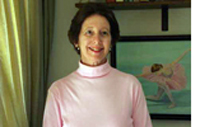How My Grandmother Prevented a Civil War, by Haggai Segal, Gefen Publishing, 2014
By Sheila Orysiek

SAN DIEGO — Haggai Segal’s grandparents immigrated to Palestine in the mid 1920’s. They fell in love with the land though the living conditions were difficult; often with no electricity, no running water, malaria, famine, hostile Arab neighbors as well as very little opportunity for employment. As part of this history the author cracks open another door; a tale of events which led to the murder of his uncle, Yedidya Segal, a member of the Irgun, in 1948.
While the inferno of the Holocaust swept across Europe, the Jews already in Palestine organized to fight for their lives against the hostile Arabs and the often deadly bias of the British Mandate. All of the Jewish underground groups, such as Irgun, Haganah and others, had the same goal – a safe place to live – but they differed on how to achieve that goal. In addition there was a contest for dominance both within each group as well as between the groups.
The violence quickly escalated into a war of Jew against Jew, including abductions, midnight home invasions, torture, beatings, executions – nothing was ruled out – as hatred turned inward and deadly. They denounced one another to the British who arrested and often executed the prisoner. Some of those executed were subsequently found to be innocent and uninvolved in any clandestine activity.
Segal’s stated intent is to search out the truth as to who killed his uncle; the Irgun blamed Haganah and Haganah blamed the Arabs. In meticulous detail, almost moment by moment, chapter after chapter, the author explores this murder. Many of the people involved were well known; some of them subsequent prime ministers of the State of Israel. The title of the book derives from Segal’s grandmother’s plea that her son’s murder not be used as an excuse for further reprisal and descent into what threatened to become a civil war.
Though I knew a smattering of this internecine history, when I finished the book I felt bludgeoned, battered and bruised not only by the avalanche of detail, but the horror of the history. As tragic as the death of the uncle was, it’s the bigger picture: Jews torturing, murdering as well as denouncing one another to the British for arrest and execution, all this at the same time as, and even after, the oceans of blood spilled during the Holocaust.
One can’t help but wonder why the author is pursuing the facts surrounding the murder of his uncle after so many years. Most of the participants are dead, records have been lost and/or altered and forensic evidence obliterated. Much of what he uncovers is surmise, hearsay, supposition and subjective conclusion.
On many levels this is not an easy book to read. It can, however be read as a cautionary tale that if differences of opinion are held and expressed with such obdurate hatred and allowed to swallow up the goal, the nation will split and Babylon and Rome will once again prevail.
*
Orysiek is a freelance writer specializing in the arts and literature. She may be contacted via sheila.orysiek@sdjewishworld.com